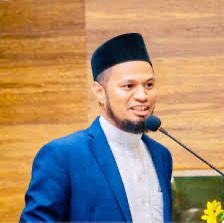
(Lanka-e-News -31.Aug.2025, 10.30 PM) The All Ceylon Jamiyyathul Ulama (ACJU), the foremost religious authority for Sri Lanka’s Muslim community, has re-elected Rizvi Mufti as President and Akram Noor Mufti as General Secretary. The announcement carries significance not only for the island’s 2 million Muslims,becoimng secong largest ethnicity in the Sri Lanka, and also for Sri Lanka’s wider social fabric, where the ACJU has long played a pivotal—if often understated—role in defending minority rights.
Founded more than a century ago, ACJU is recognised as the guardian of Sunni Muslim religious conduct and community affairs. Its remit stretches from certifying halal food standards to supervising mosque management, issuing religious guidance, and monitoring compliance with Islamic jurisprudence. Unlike the Asgiriya and Malwathu Mahanayake chapters of the Buddhist clergy, or the Catholic Cardinal, the ACJU has never been afforded an official state-sanctioned position. Yet, by force of moral authority and sheer persistence, it has become the de facto voice of the Muslim community.
The re-election of Rizvi Mufti and Akram Noor Mufti reflects continuity of leadership at a time when Muslims in Sri Lanka continue to navigate social and political cross-currents. Both figures were at the helm during some of the most turbulent moments in recent history.
When the country was plunged into suspicion and hostility following the 2019 Easter Sunday bombings, the ACJU acted as an intermediary between government authorities and a community suddenly viewed with mistrust. The organisation’s leadership presented evidence to commissions of inquiry and worked to demonstrate the distinction between extremist violence and mainstream Muslim life.
During the COVID-19 pandemic, the ACJU fought vigorously against the government’s controversial policy of forced cremations, which ran contrary to Islamic rites. Through legal advocacy, diplomatic lobbying, and persistent public engagement, the ACJU pressed for the eventual reversal of the policy, a campaign that earned it both respect and criticism in equal measure.
The organisation also took an uncompromising stance on protecting Muslim rights under the Marriage and Divorce Act (MMDA), resisting attempts it viewed as undermining religious autonomy, while also acknowledging the need for reform in certain areas.
Beyond crisis management, the ACJU has made notable strides in interfaith dialogue. It has engaged with Buddhist, Hindu and Christian leaders, and played a central role in producing the first Sinhalese translation of the Qur’an, a landmark project aimed at deepening understanding across communities.
The group has also been instrumental in the promotion of Islamic finance in Sri Lanka, advocating for Sharia-compliant banking mechanisms that now form part of the country’s broader financial landscape.
Although officially a non-political body, the ACJU has not shied away from engaging with political actors. Its leadership welcomed delegations from across the spectrum, including the National People’s Power (NPP) party, which visited the ACJU headquarters during last year’s presidential campaign. The organisation stopped short of endorsing any candidate but its emphasis on “change” was widely interpreted as tacit encouragement of Muslim participation in electing President Anura Kumara Dissanayake.
Analysts note that this balancing act—remaining politically neutral while wielding quiet influence—has allowed the ACJU to maintain credibility both with its grassroots base and with successive governments.
As Sri Lanka’s Muslim diaspora continues to expand—in the UK,USA, Canada, USA, Middle East, Malaysia and India—the ACJU is now preparing to extend its reach abroad. Plans are under discussion to establish branches in these countries to serve the religious and social needs of expatriate Sri Lankans, while also strengthening ties between local and overseas Muslim communities.
Such a move would mirror the activities of established religious authorities elsewhere, positioning the ACJU not only as a domestic institution but also as a transnational custodian of Sri Lankan Muslim identity.
The re-election of Rizvi Mufti and Akram Noor Mufti, therefore, is more than a ceremonial reshuffle. It signals continuity of a leadership that has safeguarded Muslim rights during crises, defended religious freedoms, and built bridges across faiths.
In a country where religious institutions often play as large a role as political parties, the ACJU stands as a reminder that minority representation can be asserted through moral authority rather than official titles. Whether it is halal certification in Colombo, interfaith dialogue in Kandy, or diaspora engagement in London and Toronto, the ACJU’s influence will continue to ripple far beyond Sri Lanka’s borders.
For the nation’s Muslims, this moment represents both reassurance and renewal: a leadership that has withstood storms at home and now looks outward with confidence.
---------------------------
by (2025-08-31 17:08:23)
Leave a Reply